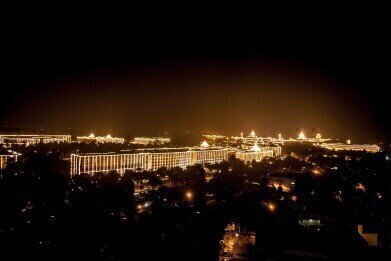Air clean up
What Caused the Delhi Smog?
Nov 15 2016
New Delhi is currently the most polluted city on Earth, with schools and businesses being closed for much of the month of November as smog levels have reached unprecedented heights. In fact, concentrations of particulate matter 2.5 (PM2.5) have skyrocketed to almost 100 times the “safe” level as defined by the World Health Organisation (WHO) and about 15 times the norm for the Indian capital.
A number of different factors
What has caused these abnormal levels of pollution? Well, India has long struggled with air quality, having overtaken China as the most polluted country in the world in 2012. Its recent rapid industrial growth has led to a whole host of factories and power plants being installed around the nation, while the dense population (especially in cities like New Delhi) mean that passenger cars emit vast amounts of nitrogen oxides (NOx) into the air.
This situation is exacerbated every year when winter arrives, as poorer residents of the city resort to burning refuse in order to stay warm. Meanwhile, farms in the surrounding area often burn huge amounts of agricultural waste at this time to clear land for crops, even though the practice is technically illegal. These fires can last for days on end and contribute significantly to the PM2.5 concentrations, which have been linked with a whole host of cardiovascular and respiratory ailments.
The air quality in New Delhi right now is at such an all-time low because of the recent Diwali celebrations. This religious festival of light involves the setting off of countless fireworks, emitting dust and soot into the air in the process. It’s this event which has brought about the current abysmal levels of air quality in the Indian capital.
Urgent action is needed
As reactive measures, the government has stopped all demolition and construction work inside the city limits and closed almost 2,000 municipal schools. Indeed, UNICEF recently called the crisis a “wake-up call” to the rest of the world to pay attention to air quality issues.
“With every breath, children in Delhi are suffering. Delhi is a wake-up call to the world on air pollution. It is a wake-up call to all countries and cities where air pollution levels have resulted in death and illness amongst children,” UNICEF said in a statement. “It is a wake up a call that very clearly tells us: unless decisive actions are taken to reduce air pollution, the events we are witnessing in Delhi over the past week are likely to be increasingly common.”
Additionally, the government have closed down the Badarpur coal-fired power plant and halted the combustion of refuse at landfill sites. However, these measures are only short-term initiatives intended to alleviate the problem, rather than prevent it from happening in the first place.
More long-term action being taken by the Indian government includes the imposition of a new car sales tax and the banning of older buses and lorries across the country. Despite these measures, the government has come under criticism from environmentalists and health experts, while hundreds of citizens protested the poor air quality last week at the Jantar Mantar monument in the capital.
Events
May 18 2025 Algiers, Algeria
23rd International Water Management Exhibition
May 20 2025 Prague, Czech Republic
Singapore International Water Week Spotlight 2025
Jun 23 2025 Singapore
Jun 25 2025 Sao Paulo, Brasil
Jul 02 2025 Bangkok, Thailand














